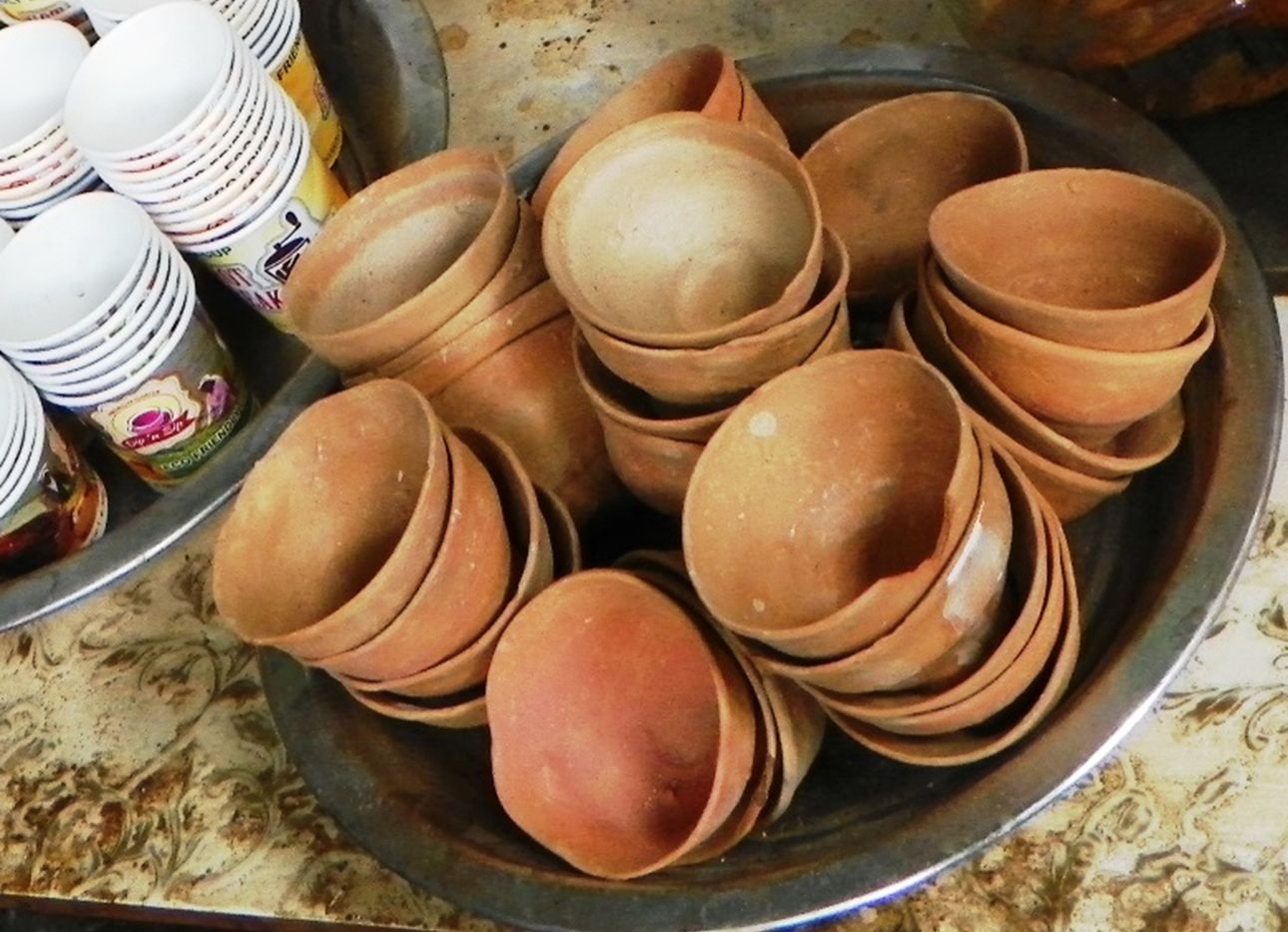
An Age-Old Indian Alternative to Single-Use Plastic Cups
Single-use plastics are the epitome of throwaway culture, centered around convenience and profit at the expense of the environment. According to the NRDC, approximately half of the 300 million tons of plastic produced annually worldwide—nearly equivalent to the weight of the entire human population—are single-use items such as drinking straws, utensils, bags, and cups. For remedies to this short-sighted usage causing irrevocable damage, we might look to other cultures for alternatives that are far more sustainable—and defy reliance on the petrochemical industry.
In Kolkata, India, small clay cups (locally known as bhar or kulhar) have been used for centuries by tea vendors—and are extolled by tea drinkers, who attest that the all-natural, unglazed material imparts a rich and earthy flavor. Made from river silt and low-fired in a kiln by local potters, bhar are intended for single use, and simply smashed into the ground to decompose when finished. While not a panacea to pollution woes, bhar are certainly less harmful than the ubiquitous plastic cup. The Indian government has begun to rethink the wheel: Nearly 400 railway stations in the country recently began introducing the age-old wares as a major step towards a plastic-free country—a momentous move that places value back into ancient traditions and local economies.